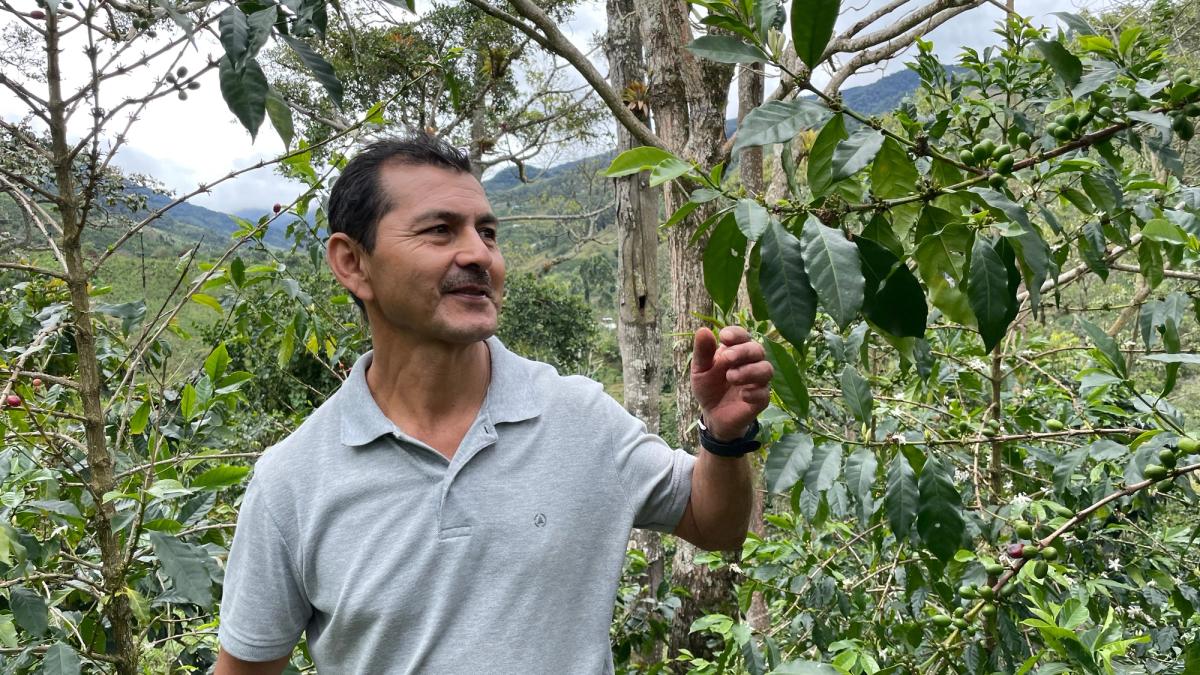
José Salazar
2022- Toffee
- Passionfruit
- Peach
José Herman Salazar is a coffee farmer who lives in close proximity to Pitalito, a municipality in southern Huila that is credited as the highest-volume coffee producing region in all of Colombia. Three main varieties are cultivated on the Salazar family farm: Pink Bourbon, Castillo, and Bourbon Ají. In 2020, Señor Salazar entered a coffee in Colombia’s Cup of Excellence competition for the first time, and was awarded 17th place for a selection of his Pink Bourbon. In 2021, he decided to enter a different, somewhat mysterious variety that he had come to refer to as “Bourbon Ají'' after noticing that the coffee cherries harvested from these particular trees had an aroma reminiscent of hot chili peppers (“ají” means “chili” in Spanish).
While genetic testing indicates that this variety is not a bourbon at all, but rather, a little known Ethiopian landrace, José Salazar’s Cup of Excellence submission certainly wowed the competition judges and his coffee was ultimately awarded 6th place in the 2021 competition with a cup score of 89.32. Passenger was fortunate to have the opportunity to purchase a small portion of Señor Salazar’s competition lot and shared the coffee as a Reserve Lot offering last year. This latest selection, also a beautiful bourbon ají selection, was purchased from the Salazar family’s 2022 harvest.

This coffee is presented under José’s name, however, he would be the first to say that each lot produced on the farm is very much an expression of shared family endeavor. While José is involved in all aspects of the family’s coffee enterprise, his particular focus is on the trees and the harvest, his daughter Blanca assists with general farm management and record keeping, and his wife Marina Elina Ansasoy devotes particular attention to processing and drying. In their words, “this coffee is a great family effort and we want to maintain the Bourbon Aji variety, to be able to show it to the world. It’s a variety that appeared on this farm and produces good quality in this region.”
The family processes their coffee using an approach that is typical for many small producers in Huila: after careful cherry selection and floating to remove defects, the coffee is pulped and transferred to sealed containers for a fermentation of 36-50 hours. When these steps have been completed, the coffee is washed with clean water, passed through a final mechanical cleaning machine, and finally dried on a covered patio for 15-25 days.